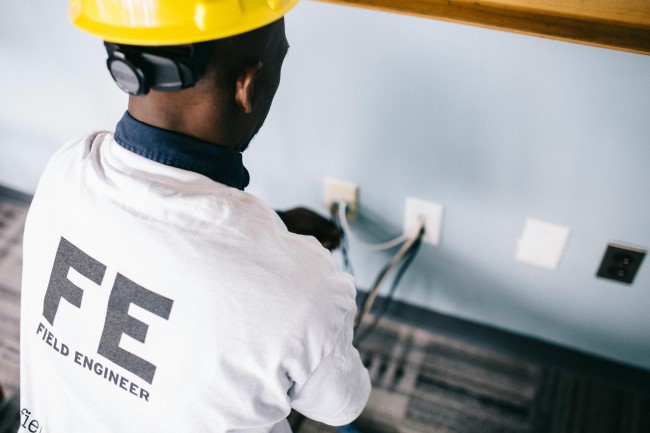Maintaining your AC system is essential for keeping your home comfortable and your energy bills low. This post will guide homeowners and HVAC technicians through the best practices to ensure maximum efficiency and longevity for air conditioning units.
The Importance of AC Maintenance
Air conditioners are essential for maintaining comfort during hot months, but many homeowners neglect their maintenance. Proper maintenance ensures that your AC runs efficiently and lasts longer. Without it, you might face high energy bills, frequent breakdowns, and costly repairs.
Well-maintained AC units, including all AC unit components, provide consistent cooling and help keep energy consumption in check. They also extend the lifespan of the unit, postponing the need for expensive replacements. With regular maintenance, your air conditioner can perform at its best, even during peak seasons.
Understanding the importance of AC maintenance is the first step toward achieving a cool, comfortable, and cost-efficient home environment. This blog will detail various aspects of upkeep, offering tips and insights to help you keep your system in top shape.
Signs Your AC Needs Maintenance
Recognizing when your AC needs maintenance can save you from significant issues down the line. Common indicators include unusual noises, weak airflow, and inconsistent cooling.
Odd sounds like grinding, squealing, or banging usually signal mechanical problems. These noises often mean that parts are wearing out or loose. Addressing these issues early can prevent more severe damage and costly repairs.
Weak airflow might indicate that the filters are clogged or there is an issue with the fan or ducts. A poorly maintained AC won’t distribute air efficiently, leading to uneven cooling and increased energy consumption.
Inconsistent cooling means your AC can no longer maintain a set temperature. This problem may be due to a failing thermostat, refrigerant leaks, or other internal issues. Regular maintenance helps identify and fix these problems before they escalate.
DIY Maintenance Tips
Homeowners can perform several simple maintenance tasks to keep their AC running smoothly. Start by cleaning or replacing the air filters every month. Dirty filters restrict airflow, forcing the system to work harder and use more energy.
Another essential task is to clean the condenser coils. Over time, dirt and debris can accumulate on the coils, reducing their efficiency. Gently clean them using a soft brush or a vacuum cleaner to remove any buildup.
Inspecting the outdoor unit is also crucial. Ensure that it’s free of debris, leaves, and other obstructions. Trim any plants or bushes around the unit to maintain proper airflow. Keeping the area around the unit clear prevents overheating and ensures optimal performance.
Seasonal Maintenance Checklist
Seasonal maintenance is vital for preparing your AC for different weather conditions. Before the cooling season begins, check the refrigerant levels to ensure they are adequate. Low refrigerant levels can lead to poor cooling performance and damage to the compressor.
Inspect the ductwork for any leaks or damage. Sealing leaks and insulating ducts can significantly improve the efficiency of your system. This step helps maintain consistent temperatures and reduces energy consumption.
Additionally, test the thermostat to ensure it’s functioning correctly. Consider upgrading to a programmable or smart thermostat for better control over your home’s temperature. These devices can help you save energy by adjusting the temperature based on your schedule.
Importance of Professional Maintenance
While homeowners can handle some maintenance tasks, professional maintenance is essential for thorough and effective upkeep. HVAC technicians have the expertise and tools to diagnose and fix complex issues that might go unnoticed by untrained eyes.
Professional maintenance typically includes a comprehensive inspection of the entire system. Technicians will check for refrigerant leaks, inspect electrical components, and ensure that the system is operating at peak efficiency. This level of attention helps prevent breakdowns and prolongs the lifespan of your AC.
Scheduling regular professional maintenance, ideally, once a year, is crucial for keeping your AC in top shape. It helps identify potential problems early and ensures that your system remains efficient and reliable throughout the year.
Cost of Neglecting AC Maintenance
Neglecting AC maintenance can lead to several long-term costs. One of the most immediate consequences is higher energy bills. An inefficient AC system consumes more electricity, driving up your monthly expenses.
Frequent breakdowns are another costly outcome of neglect. Without regular maintenance, minor issues can escalate into major problems, requiring expensive repairs or even complete system replacements. These costs can quickly add up, making routine maintenance a more cost-effective option.
Finally, neglecting maintenance can shorten the lifespan of your AC unit. A well-maintained system can last 15 years or more, while a neglected one may fail in less than 10 years. Investing in regular maintenance helps you get the most out of your system and delays the need for a costly replacement.
Conclusion
Maintaining your AC system is essential for ensuring its efficiency, reliability, and longevity. By recognizing the signs of needed maintenance, performing simple DIY tasks, and scheduling professional check-ups, homeowners can enjoy a cool and comfortable home without breaking the bank.
ort and savings are just a call away.

